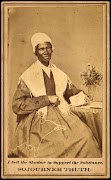Okay, I'm ready to rant. What is it about the "F Word" that young people (okay, dating myself--but dating yourself is a bit narcissistic isn't it?).... What is the attraction of that word? Except in some cases where the intensifier is positive ("That was so fuckin' good!") someone is usually getting hurt or taken advantage of--getting fucked. The word would be meaningless and harmless if it didn't have that other history that links it with rape. I remember the first time I ever heard the word "rape" as a child--maybe fifth or sixth grade. Another little girl told me she'd been raped. I can't remember why she told me. It hadn't just happened, but was something in her past. She was not someone I knew well. We were getting to know each other, and this was part of her identity that she was passing along. Information about who she was. We were sitting somewhere outside. She didn't want to say the word "rape" so she wrote it in the sand. But I had never heard the word. This was in the fifties, and I was sheltered. But for some reason, I knew that other four letter word, probably from dirty jokes, probably not really knowing anatomical details of how this happened, and she told me that it meant the same thing. As I listen to the word in context, read it on face book, I think maybe she's right. The word has a history that cannot be shaken. Coming somewhere between rape and consensual coitus, "fuck" and its euphemistic cousin "screw" have become words for being a sucker (another word we need to think about) and a victim who is to be blamed for whatever happened. I have a vivid memory of my daughter's first husband in the middle of the night talking on the phone presumably with another member of a pizza company's management team: "Fuckin' A! Fuckin'A! We fucked them in the ass this time!" This is the sort of thing, whatever it was, that gave him delight.
We could use "shag" but that word has popular culture connections that trivialize the mutual act of bonding (let's ignore for now how lasting that bonding might be) that is the physical act of "making love" that we are talking about here. Although, as a resident of the Carolina coast, the dancing connotation isn't a bad one to me.
But let me propose another word, one with an older Anglo-Saxon origin. I'll check OED for both of them, but I know that, at least in written texts, this word is older. The word I suggest is "swive"--a word that implies a swaying, perhaps a wiving, a mutual movement of two bodies together. I even think of the word "swan"--which conjures up images of a famous rape--Zeus of Leda--but also makes us think of grace and ease of movement. To swive is to work together, not to do something or to have something done to you--an intransitive verb that does not take an object but requires two subjects. So, please, don't fuck with me. Let's swive.
Saturday, July 10, 2010
Subscribe to:
Post Comments (Atom)











No comments:
Post a Comment